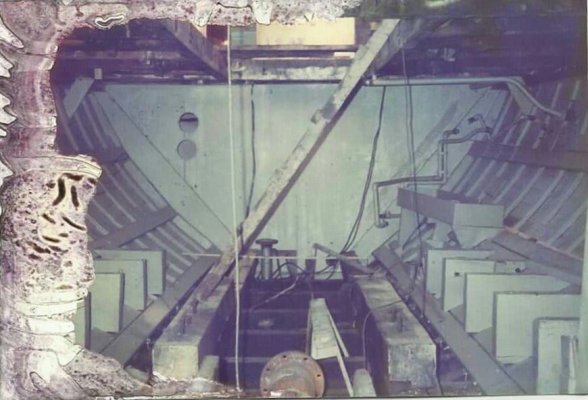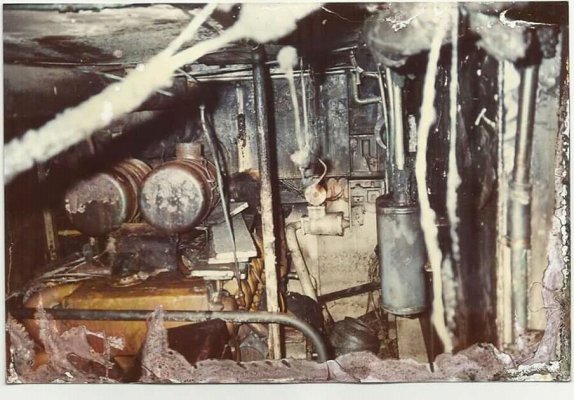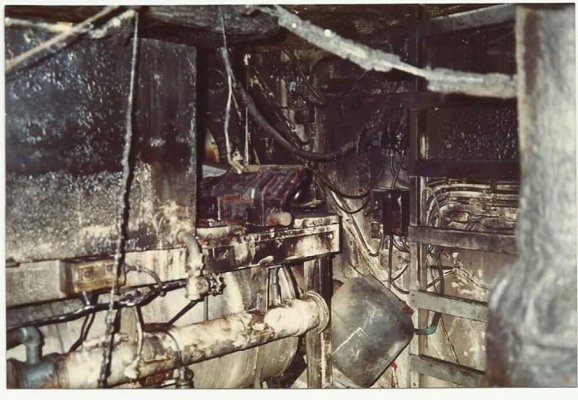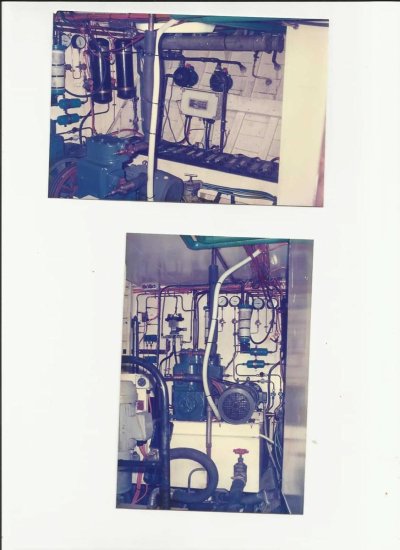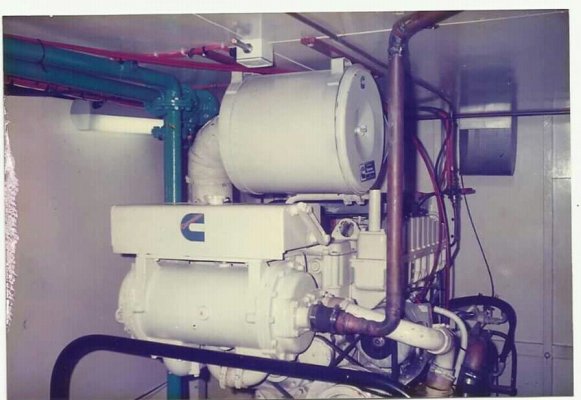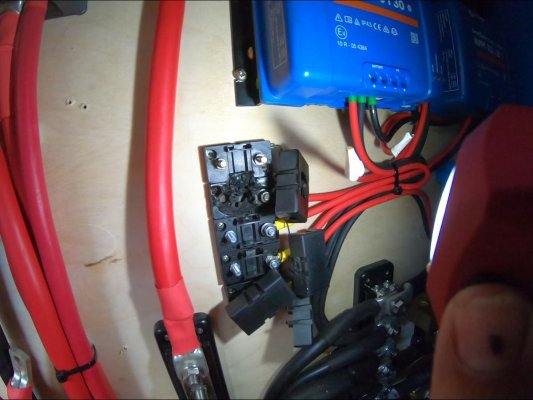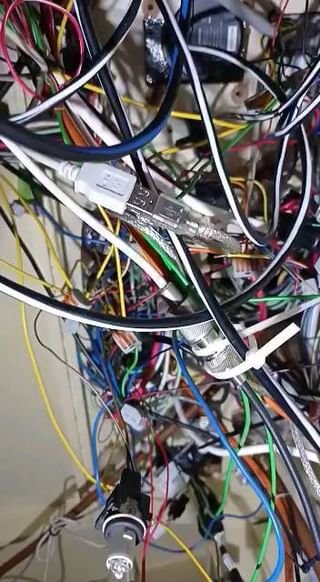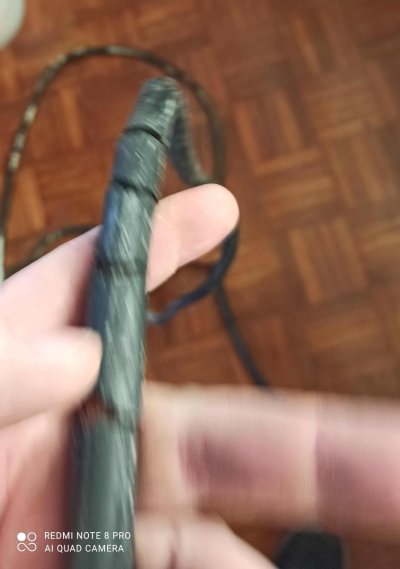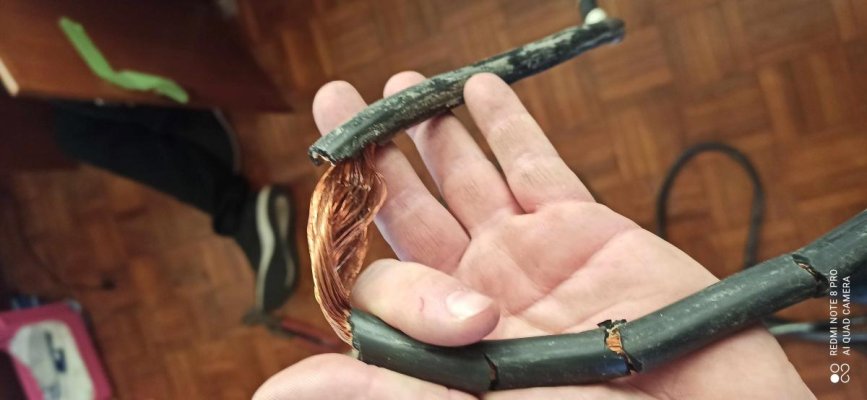Mambo42
Guru
- Joined
- Oct 26, 2021
- Messages
- 924
- Vessel Name
- Endless Summer
- Vessel Make
- 1979 Defever 49
As you may know I had the boat rewired this winter after I had found multiple cables that were completely crumbled or in simply a bad condition. On purpose I used fire retardent cables and upgraded to 24 V. Also installed 8 x 400 Wp solar which run through 5 MPPT controllers and are then connected to the main charger bus bar via 35 A fuses. (5 x).
I thought it was all installed perfectly, system looks fine, set up was ok, but as we found out a week ago it was not.
We had just (about 1 hour out) left the island of Sifnos, on our way to Naxos, with the water maker on, when we were sitting on the fly bridge and suddenly i heard a faint beeping sound. If the radio would have been on I would have never heard it. After checking I found out it came from the lazarette. That meant two options, smoke from the engine room entered the lazarette and set off the smoke alarm there or it was the electrics in the lazarette.
That last option did not seem logic to me since the boat had just received a complete new installation, done by some of the best electricians on the island of Corfu.
So the only thing to do was to shut the whole boat down, which meant engines off, all electrics off, all battery switches off and find out what the source of the smoke was. As it turned out the fuse holders for the solar panels had started to melt and then burn, scorching the wooden panel on which they were mounted.
What caused this fire ?
Some of the nuts of the fuse holders had come loose or were not tightened enough. That caused a restriction and with the high amps running through the cables and connectors it was enough to raise the temperature to such levels that the plastic melted, but the fuse itself did not break, thereby keeping the source of the fire intact.
If we would not have heard the smoke alarm it would have ended in a full blown fire, luckily it did not.
After returning to Sifnos I contacted the electricians and asked them why they had used plastic fuse holders. Their answer was that these are used predominantly in boating world. So I told them to change the fuse holders for porselane fuse holders with normal porselan fuses. All plastic is now removed from the boat, the cable harness has been changed from 6 mm2 to 10 mm2 for every MPPT controller and all the nuts have been tightened by me. I found 2 other nuts that were not tight, guess this is the Greek way of working.
In all an electrical fire is a scary happening when you are out in a pretty rough sea. We hope we will never have this happen to us again.
We are now trying to continue our journey to Turkey, but the weather is prohibiting that. No idea when we will arrive, but when we do we will finish with the last upgrades: installing waveless stab 25 stabilizers and 1400 Ah of LiFePO4 Victron batteries.
When that is done I will post the whole system here, so that perhaps someone can use it as a tip for a new installation for their boat. Will also post all the specifications of the equipment used.
I thought it was all installed perfectly, system looks fine, set up was ok, but as we found out a week ago it was not.
We had just (about 1 hour out) left the island of Sifnos, on our way to Naxos, with the water maker on, when we were sitting on the fly bridge and suddenly i heard a faint beeping sound. If the radio would have been on I would have never heard it. After checking I found out it came from the lazarette. That meant two options, smoke from the engine room entered the lazarette and set off the smoke alarm there or it was the electrics in the lazarette.
That last option did not seem logic to me since the boat had just received a complete new installation, done by some of the best electricians on the island of Corfu.
So the only thing to do was to shut the whole boat down, which meant engines off, all electrics off, all battery switches off and find out what the source of the smoke was. As it turned out the fuse holders for the solar panels had started to melt and then burn, scorching the wooden panel on which they were mounted.
What caused this fire ?
Some of the nuts of the fuse holders had come loose or were not tightened enough. That caused a restriction and with the high amps running through the cables and connectors it was enough to raise the temperature to such levels that the plastic melted, but the fuse itself did not break, thereby keeping the source of the fire intact.
If we would not have heard the smoke alarm it would have ended in a full blown fire, luckily it did not.
After returning to Sifnos I contacted the electricians and asked them why they had used plastic fuse holders. Their answer was that these are used predominantly in boating world. So I told them to change the fuse holders for porselane fuse holders with normal porselan fuses. All plastic is now removed from the boat, the cable harness has been changed from 6 mm2 to 10 mm2 for every MPPT controller and all the nuts have been tightened by me. I found 2 other nuts that were not tight, guess this is the Greek way of working.
In all an electrical fire is a scary happening when you are out in a pretty rough sea. We hope we will never have this happen to us again.
We are now trying to continue our journey to Turkey, but the weather is prohibiting that. No idea when we will arrive, but when we do we will finish with the last upgrades: installing waveless stab 25 stabilizers and 1400 Ah of LiFePO4 Victron batteries.
When that is done I will post the whole system here, so that perhaps someone can use it as a tip for a new installation for their boat. Will also post all the specifications of the equipment used.

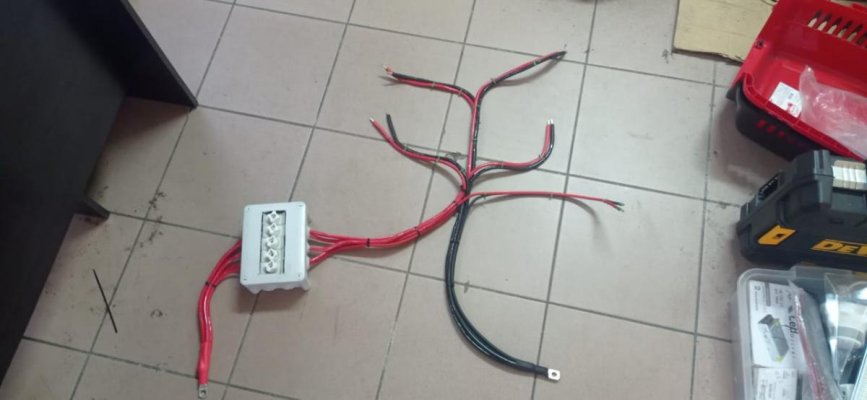
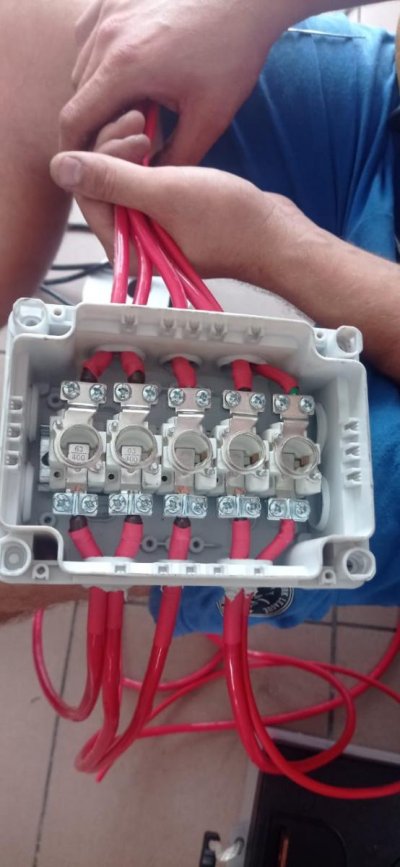
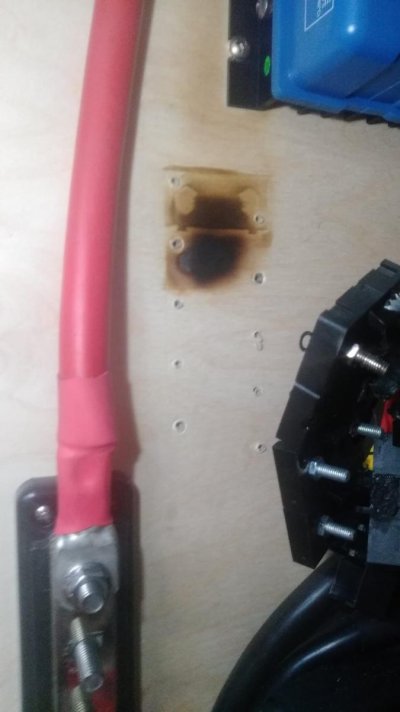
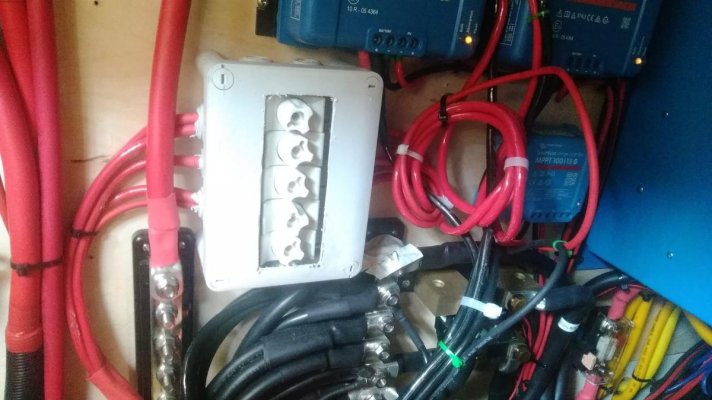

 Unlike the Maytag.
Unlike the Maytag. 
